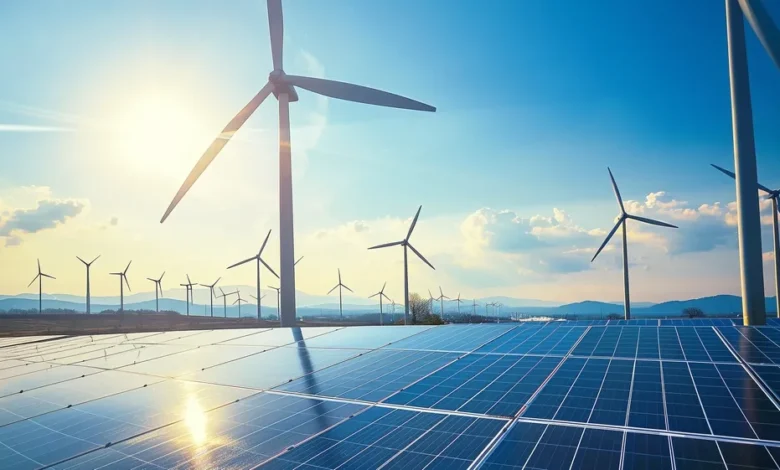How Solar Panels Can Drastically Reduce Your Energy Bills in 2024

As energy costs continue to rise globally, homeowners are seeking effective solutions to lower their electricity bills. One of the most reliable and sustainable options is installing solar panels. By generating electricity from the sun, solar panels offer a way to drastically reduce monthly energy expenses. In 2024, technological advances and governmental incentives make solar panels an even more attractive option for homeowners.
This guide explores how solar panels can lead to significant savings, while also providing tips on optimizing energy efficiency, choosing the right solar system, and understanding financial incentives.
Why Solar Panels Are a Smart Investment in 2024
The cost of traditional energy sources like coal, gas, and oil continues to rise, driven by supply constraints, geopolitical factors, and environmental regulations. In contrast, solar energy harnesses a free, abundant resource—the sun. This is one of the reasons solar panels are an investment that pays off both financially and environmentally.
Rising Energy Costs and Their Impact on Households
Electricity prices have steadily increased due to inflation, fossil fuel scarcity, and infrastructure maintenance costs. Many countries, including the United States and parts of Europe, have experienced consistent rises in energy prices over the past few years. For homeowners, this has led to higher electricity bills.
By installing solar panels, homeowners can offset a large portion of their energy costs. Solar energy allows them to produce their own electricity, reducing dependence on the grid and the fluctuating prices of fossil fuels.
Solar Panel Prices Are Dropping
One key reason solar panels are a viable solution in 2024 is the decrease in their prices. Over the last decade, solar panel technology has advanced, driving down costs while improving efficiency. This has made solar systems more affordable for homeowners of all income levels.
In addition, many governments offer financial incentives such as tax credits, rebates, and low-interest loans to encourage the installation of solar panels. These incentives can significantly lower the upfront costs, making the switch to solar power more accessible.
Understanding How Solar Panels Save You Money
Solar panels drastically reduce energy bills by generating electricity directly from sunlight. Here’s how they work:
Generating Your Own Electricity
When sunlight hits a solar panel, the photovoltaic cells within convert the sunlight into electricity. This electricity is then used to power household appliances, lights, and other devices. Any excess electricity produced can often be stored in a battery system or sold back to the grid, further reducing utility costs.
By generating your own electricity, you avoid paying for the energy you would otherwise need from your utility company. The more energy your solar system produces, the more you save.
Net Metering and Selling Excess Power
Many regions offer a policy called net metering. Under this arrangement, when your solar panels produce more electricity than you need, the excess power is sent back to the grid. In return, you receive credits on your electricity bill. This can result in substantial savings, especially during sunny months when your panels are generating high amounts of energy.
For example, if you use more energy in winter but generate more power in summer, the credits you earn from net metering can balance out your electricity costs, reducing your annual energy expenses to near zero.
Reducing Peak Hour Energy Usage
Electricity prices can vary based on the time of day. Peak hours, when energy demand is highest, often result in more expensive electricity rates. Solar panels allow you to avoid these peak hour rates by using the energy produced by your system instead of drawing from the grid. This further reduces your electricity bill and increases the return on your investment.
Factors That Affect Solar Panel Savings
Although solar panels can significantly lower your energy bills, the amount of savings depends on several factors, such as:
Location and Sunlight Exposure
Your geographic location and the amount of sunlight your home receives directly impact how much energy your solar panels can produce. Homes in sunnier regions will generally save more money than those in areas with less sunlight. However, even in less sunny regions, modern solar panels are designed to capture as much energy as possible, maximizing efficiency even on cloudy days.
System Size and Efficiency
The size of your solar system plays a major role in how much energy it can generate. A larger system will produce more electricity, but it will also cost more upfront. Balancing your energy needs with the right system size ensures optimal savings. Additionally, choosing high-efficiency solar panels can further increase the amount of electricity generated, leading to greater cost reductions over time.
Electricity Consumption Habits
Your electricity consumption habits will also affect the savings from solar panels. Homes that consume a lot of electricity during the day—when solar energy production is highest—will benefit more than those that consume more energy at night. Using energy-efficient appliances and smart home technologies can further reduce overall consumption, enhancing the benefits of solar power.
Maximizing Solar Energy Efficiency
To make the most of your solar panels, it’s essential to optimize energy efficiency in your home. Here are some tips to help you get the maximum savings from your system:
Invest in Energy-Efficient Appliances
By upgrading to energy-efficient appliances, you can reduce your household’s electricity consumption. This, in turn, maximizes the effectiveness of your solar panels. Look for appliances with high energy ratings, such as ENERGY STAR-certified products, to save more on electricity costs.
Schedule Regular Solar Panel Maintenance
Proper maintenance ensures that your solar system operates at peak efficiency. Cleaning your solar panels regularly and scheduling professional inspections can prevent dust, dirt, and debris from reducing energy production.
Use a Solar Battery for Storage
Adding a solar battery to your system allows you to store excess energy generated during the day. You can then use this stored power at night or during periods of low sunlight, further reducing your reliance on the grid and cutting energy bills.
Financial Incentives for Solar Panel Installation in 2024
Governments and utility companies around the world offer financial incentives to encourage the adoption of solar energy. These programs can make a significant difference in the upfront cost of solar panels, leading to faster payback periods and more substantial long-term savings.
Federal and Local Tax Credits
In countries like the U.S., homeowners can take advantage of the federal solar tax credit, which allows you to deduct a percentage of the cost of installing solar panels from your taxes. Many states and local governments also offer rebates or tax incentives to reduce the cost further.
Solar Financing Options
Many solar companies now offer financing options that allow homeowners to spread the cost of their solar panels over time. Leasing programs, power purchase agreements (PPAs), and low-interest solar loans provide flexible options for those who want to benefit from solar energy without large upfront costs.
DSG Energy is committed to transforming Pakistan’s energy landscape by promoting the use of solar panels to reduce electricity costs and reliance on traditional energy sources. Through their advanced Grid Tied Solar System installations, they empower homeowners to significantly cut down on energy bills while contributing to a cleaner, more sustainable future. By switching to renewable energy, DSG Energy not only helps customers save on their energy consumption but also supports improved grid reliability and a reduced carbon footprint, making solar power an accessible and efficient solution for long-term savings.
Is Solar Power the Right Choice for You?
Switching to solar power offers substantial savings on energy bills and is a step toward a sustainable future. Whether you’re in a sunny or cloudy region, modern solar panels can still produce enough electricity to make a significant dent in your energy expenses. Additionally, with the available financial incentives in 2024, the transition to solar is easier and more affordable than ever.
By reducing reliance on the grid, taking advantage of net metering, and using energy-efficient technologies, homeowners can see a dramatic drop in their electricity bills, making solar power a wise investment for long-term savings.
Solar panels not only reduce your energy costs but also contribute to a greener, more sustainable future. In 2024, the combination of falling panel prices, rising electricity rates, and government incentives makes solar energy a smart solution for homeowners looking to save money and reduce their carbon footprint.




